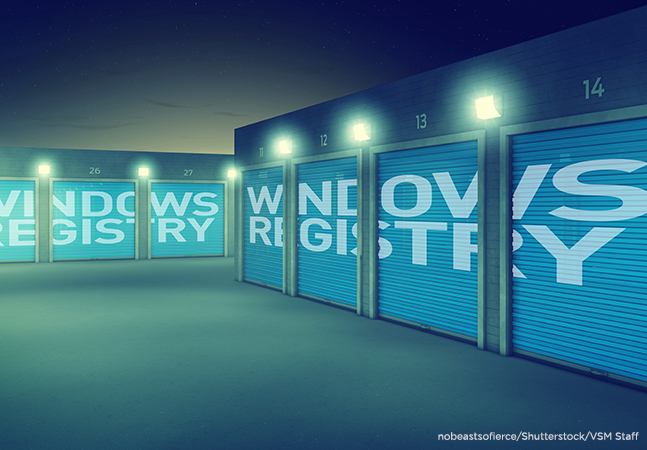
If you're coding Azure Functions in Visual Studio 2017 to work with Azure Storage, one tool that can assist when running functions locally is the Microsoft Azure Storage Emulator, as shown in this hands-on tutorial.
- By Jason Roberts
- 03/08/2018

If you're building services it's critical that you support the developers who will create and read your service's messages. JSON Schema lets you support the three principles of good message design in a way that supports developers.

You can dramatically simplify life for developers creating services and their consumers by following three rules for designing messages and then enforcing your message formats with JSON Schema.

If you're building services, then getting your message formats right can be the difference between success and failure. Here's an example of what can go wrong and how it could be fixed.

View components let you create reusable chunks of business logic coupled with a UI in multiple places in your application ... and then let you share that logic across multiple projects. Here's how to invoke them and share them.

Web workers in TypeScript give you concurrent processing but they can be awkward to debug. However, if you set up your web worker code as just another function, you can simplify debugging (or even build your web worker dynamically at run time).

Once you've created a JSON Schema that describes a JSON document, you can use it both in Visual Studio -- to provide guidance when creating JSON documents -- and in your code to validate the messages you're receiving.

Here's how to use web workers in ASP.NET MVC with TypeScript to enable concurrent processing in your client-side code. And, as a bonus, the correct way to think about web workers.

This hands-on tutorial features an example app that displays a list of American cities, allowing the user to see a subset of choices by typing a filtering text value.

If you're building a RESTful Web service, you can provide both guidance and control around the JSON messages your service works with by replacing documentation with JSON Schemas.

No matter how many HTTP codes there are, you really only need to check one property to determine success or failure.

Dino Esposito explains JSON-to-rowset native support in SQL Server 2016 and provides a realistic perspective of data query when you have JSON data stored in the database.
- By Dino Esposito
- 01/23/2018

After suffering the consequences of accidentally turning off his firewall for a month and then experiencing a catastrophic workstation failure that took out both of his mirrored hard disks, Tim Patrick gained a new appreciation for online code repositories. He adopted VSTS and won't be looking back.

Our cross-platform C# specialist turns his attention to the iOS side of things only to demonstrate some programming issues associated with the much-hyped device from Apple, including Face ID, the "notch," Safe Areas, Large Titles and more.
- By Wallace McClure
- 01/11/2018

You don't need to write ugly code to synchronize your AJAX calls. Instead, you can leverage await/async and the JQueryXHR object to simplify the code around your AJAX calls while still getting the benefits of concurrent processing.

One situation that can prevent a successful file transfer is when the destination file is, in fact, the program that's doing the copying. Here's how to work around such problems.

SQL Server 2016 and Azure SQL Database both give you tables that automatically keep track of the history of your data. Here's how to retrieve that historical data.

SQL Server 2016 and Azure SQL Database both give you tables that automatically keep track of changes to your data. Here's how to both create those tables and alter existing tables so they track the history of your data.

You can speed up how fast your "less frequently used" sites load by sharing assembles among your sites. You'll also reduce memory consumption on your server.

OOP is a special kind of animal, says Tim Patrick, who shows how to put one of its core principles, encapsulation, to work while coding constructors for base and derived classes.

Today, application settings are more likely to appear in local XML files, but the Windows Registry and its hives of key/value pairs can also be used. The good news is that interacting with the Registry is straightforward, as Tim shows you here.

With SQL Server 2016, you can store JSON objects in your rows. Here’s how to work with JSON objects, including how to update them once you’ve found them.

When it comes to inheritance, relational database theory and object-oriented programming have more in common than you might think. Understanding that overlap is critical in designing the object model that will generate the database design your application needs.

In an app of any meaningful size, wrapping up common functionality in a composite control reduces the long-term effort needed to craft the app. Learn how to do just that right here.

It’s easy to integrate your own attribute directives into Angular 2 templates to pass data from your component to your directive, have it respond to events on your page or even have your directive fire events to be processed by the component using it.